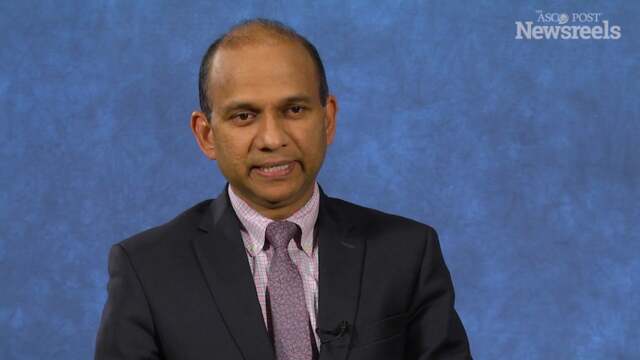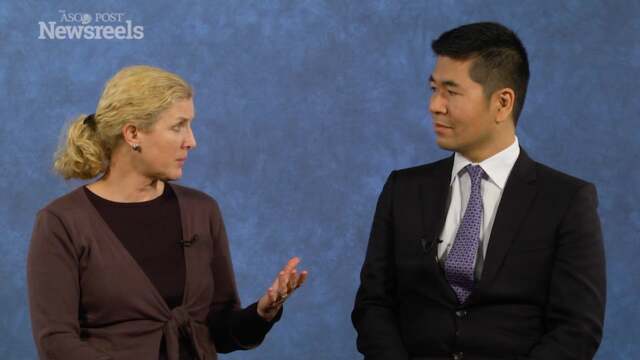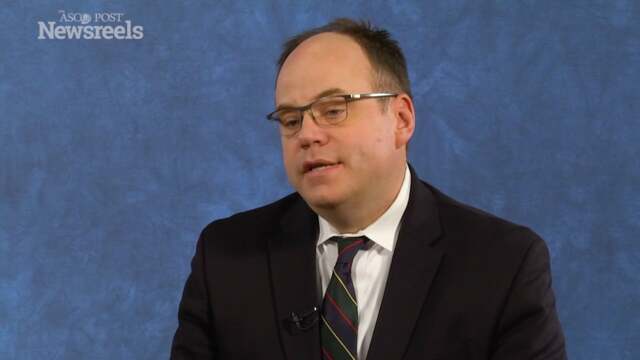Harold J. Burstein, MD, PhD, on Adjuvant Endocrine Therapy: Expert Perspective
2016 San Antonio Breast Cancer Symposium
Harold J. Burstein, MD, PhD, from Dana-Farber Cancer Institute, gives an update on the duration of adjuvant endocrine therapy and offers his expert views on putting the research data into clinical practice.
Jennifer A. Ligibel, MD, of Harvard Medical School, discusses the impact of preoperative exercise on breast cancer gene expression (Abstract S5-05).
Jame Abraham, MD, of the Cleveland Clinic, gives his perspective on study results of extended adjuvant endocrine therapy in postmenopausal women with estrogen receptor–positive breast cancer who have completed previous adjuvant endocrine treatment (Abstract S1-05).
Jennifer K. Litton, MD, of MD Anderson Cancer Center, and Ann H. Partridge, MD, of the Dana-Farber Cancer Institute, discuss a range of issues for young women with breast cancer, including epidemiologic and biologic differences in younger patients, fertility issues, and pregnancy-associated breast cancer (Poster Discussion 6).
Lisa A. Carey, MD, and Maki Tanioka, MD, both of the University of North Carolina, discuss study findings on weekly paclitaxel and trastuzumab with or without lapatinib for HER2-positive breast cancer (Abstract S3-05).
Matthew P. Goetz, MD, of the Mayo Clinic, reviews progress made during the past year on treatment of advanced disease.





